It is tempting to call Alejandro González Iñárritu’s The Revenant a disappointment. The problem is that I was having trouble understanding what all the fuss over the trailer was about in the first place. So for me it’s less a disappointment than it’s exactly what I expected. It’s a very long, beautifully crafted, rather gray movie. It is without a doubt a cinematic tour de force, showing off Iñárritu’s penchant for grueling long takes and his cinematographer Emmanuel Lubezki’s ability to film them (or at least offer a convincing simulation of them). Oh, it’s not as elaborate as the single-take illusion of last year’s Birdman, but its visual panache — aided no end by an extensive use of wide-angle lenses that enhance the scope and give the film a mildly surreal feeling — is undeniable. As a technical exercise, The Revenant is hard to fault — and that will doubtless be enough for some. As compelling drama, it’s on less firm ground. It is most assuredly no Birdman — not in the least because here Iñárritu has lost all sense of playfulness and we’re back to the unrelenting grimness of Biutiful (2010).
Based in part on historical events and on the novel by Michael Punke, Iñárritu and horror movie scribe Mark L. Smith have created an 1820s survivalist nightmare with revenge at its center and duplicity aplenty. The situation is that real life Hugh Glass (Leonardo DiCaprio) — the explorer guide of a group of fur trappers — was mauled by a grizzly bear and left for dead by the men set to watch him. Only afterwards, did Glass manage to make his way through a couple hundred miles of wilderness and disabuse them of their mistake. (He was apparently none too pleased.) That much appears to be reasonably authentic, but the stakes have been upped for dramatic purposes — and for some mystical trappings. (The following might be termed spoilers for those sensitive to such things, though I’d hardly call these things plot twists.) Presumably abandonment wasn’t enough, so Glass has been given a dead Pawnee wife (excellent for flashbacks and visions) and a living son, Hawk (Forrest Goodluck), by her. This allows Glass’ nemesis John Fitzgerald (Tom Hardy) — a thoroughly unlikable character who mumbles most of his dialogue — to murder Hawk — in front of the helpless Glass — in order to leave the supposedly dying man to his fate. Now it’s really about revenge.
The bulk of the film concerns the whole business of survival and revenge. According to Iñárritu, what he was after was to see what a man stripped of everything is capable of. Fine, I suppose, but this runs smack up against the question of whether or not the audience has been given the slightest reason to care about Glass. We’ve been given little characterization in the early scenes, and after the bear attack we’re given even less. It sounds glib, but a good deal of The Revenant really does consist of little more than a bloodied, matted, lumbering, grunting, presumably smelly Leonardo DiCaprio staggering through the gray wilderness as abuse after abuse is heaped on him.
Apparently, Iñárritu really put his actors, his technicians and himself through the wringer to make this film. It was an endurance test for everyone — and now it becomes a similar test for the audience. But to what end? There’s just nothing and no one here to be invested in. It’s a lot of work — for little, if any, benefit. I’m not calling The Revenant a bad film. As I noted, as pure filmmaking, it’s amazing. On any other level, however, there’s just not much there. Rated R for strong frontier combat and violence including gory images, a sexual assault, language and brief nudity.

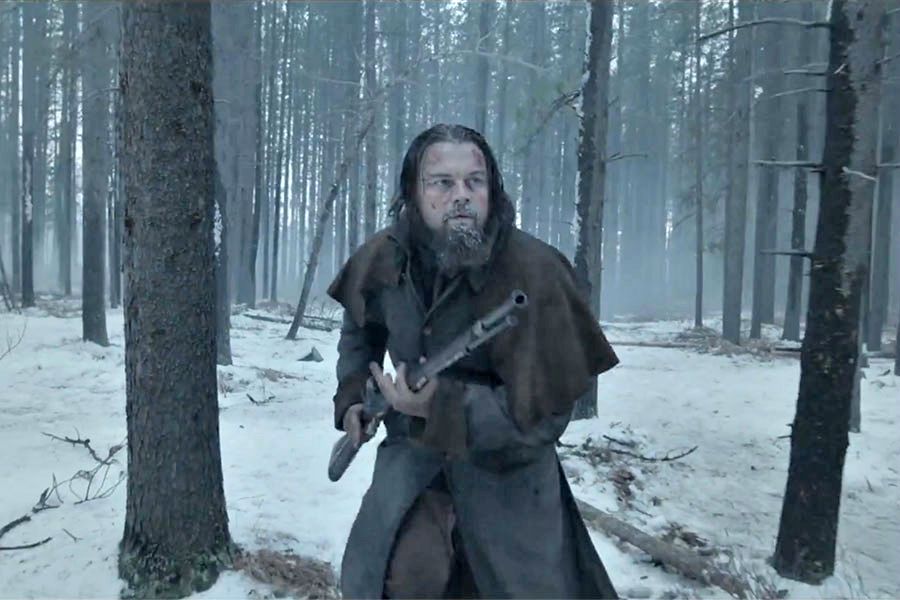
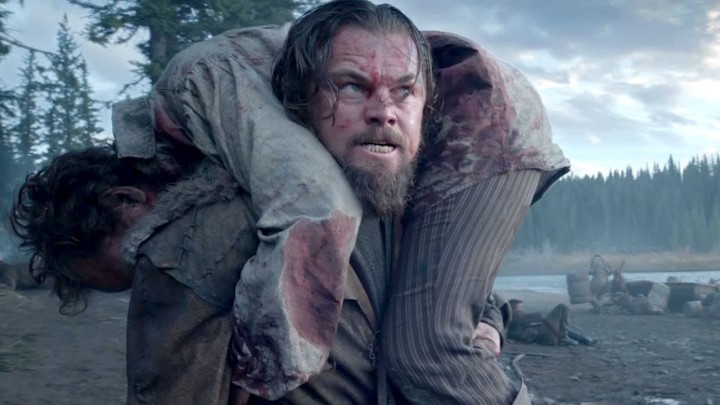

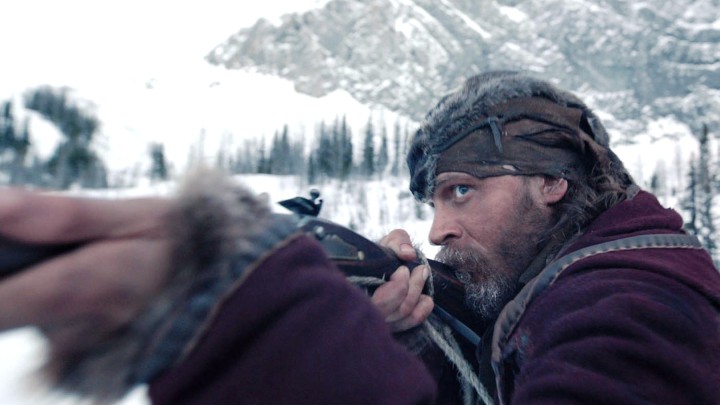
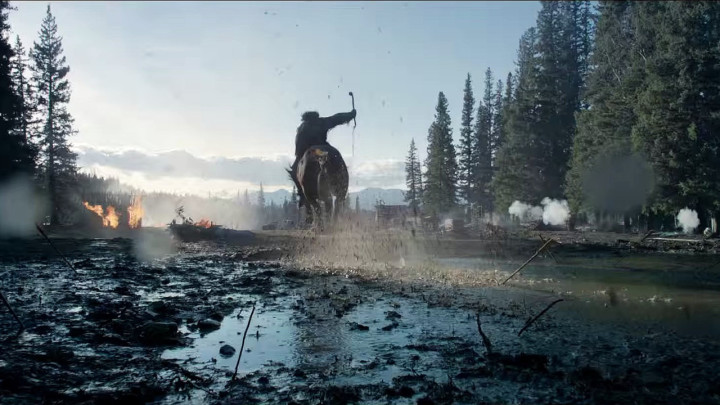
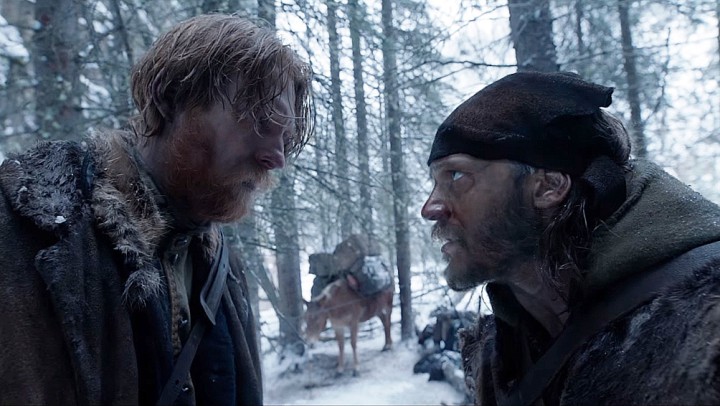

Love me some long takes. Can’t wait to see what I predicted as Best Pic of the Year.
Why? Long takes in and of themselves are pretty meaningless.
After a decade and change of Bourne style shaky cam and MTV inspired editing its all much needed medicine.
(Shakes head. Walks away.)
I got peer pressured into seeing this last night. Gotta say, I could have done without watching poor Leo grunting and bleeding for 2 1/2 hours. Unrelenting grimness, indeed.
I simply do not get the appeal of the film.
I think this film deserves a lot of praise for capturing the ethos of the wilderness.
Speaking for myself, I like it when the setting of a movie is so alive and is a key character in the film, like Brazil, or The Edge, or Seven Years in Tibet, or The Enemy…to name a few…. Especially, as in this case, a good wilderness film. The “man vs. nature” conflict works best for me when it’s not the sole thrust of the film’s conflict, but is more a character in the film that transcends sides. With the Rev. it was more than a ‘survival’ tale (like Castaway or All is Lost or “Tracks”) but the filmmakers were still so committed to wonderfully capturing the awe of being in and of the wilderness. That was wonderful for me. I don’t mind watching good actors grunt and moan in the forest floor for hours when it feel so much like a good catharsis of what i can feel in the woods and what i miss being out of them. Good “earthy” films are few and far between. The fact that they filmed it on location with all natural lighting with real freezing actors probably goes as far as his long takes to making the catharsis real for me. :)
Oh, and as for the long shots, I like them. They are panoramic so its an immersive experience far superior to gimmicky 3d stuff, and without having to stop the action in order to show us the setting. It also enhances a sense of immediacy in a way very easy to watch. One can shake a camera up, and flash lights to create that, but the more Yin approach of long graceful shots punctuated by moments of intensity are infinitely more effective and impressive.
“Long shots” that are something to capture the panoramic setting are one thing. Long takes are another. I am intrigued, however, by the idea you espouse — in concert with T. rex — that it’s an either/or question, i.e., that it has to be long, unbroken (or seemingly unbroken) takes, or it has to be shaky cam. That’s hardly the limit of filmmaking technique.
The difference between “long shot” and “long take” noted.
Your lack of enthusiasm for long takes noted as well.
I am not four-square against them. I simply am not impressed by them for their own sake.
I’m going to have to disagree with you on this one, Ken. It grabbed my full attention from the beginning and never let go (much like that bear) and it stayed with me for days afterwards. It is unlike any movie I have ever seen and took me into the wilderness in a way that felt more real and immediate than I have ever experience through a film. I also have never been crazy about DiCaprio (except for Gilbert Grape) but if he wins the Oscar for this he deserves it. This has become my best film for 2015 and I have not been able to stop thinking or talking about it.
That’s okay. I wish I felt that way, but I’ve watched it twice and it just does nothing for me.
I have no problem with him winning the Oscar, but I’d view it as making up for previous losses.